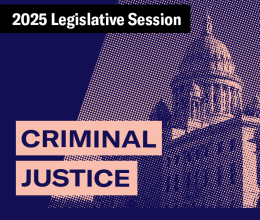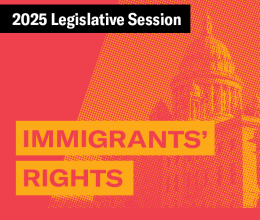The ACLU of Rhode Island and four other organizations are urging Rhode Island Attorney Peter Kilmartin to establish a uniform enforcement policy for the state’s new residency restriction law prohibiting individuals convicted of certain sex offenses from living within 1,000 feet of a school.
In a letter Wednesday to Attorney General Kilmartin, the ACLU, OpenDoors, the RI Coalition for the Homeless, House of Hope CDC, and the RI Homeless Advocacy Project, stated that the current enforcement of the law, which they described as arbitrary and draconian, is “deeply troubling.”
The groups noted that this past week the North Smithfield Police advised an individual that it was determined he lived within 1,000 feet of a school and that he had just one day to find new housing and move or else face arrest. The Providence Police Department recently advised offenders living in the city that they had 30 days to move. However, a week after being advised by Providence police that he had 30 days to move, one individual was told by his probation office that he had to move “immediately” in order to comply with the law.
“Requiring people to flee their homes in the face of felony charges will contribute to the likelihood of chaotic relocations and homelessness. The result of imposing these draconian compliance time requirements is to make it more, not less, difficult for police to keep track of offenders, and more difficult for those offenders to maintain jobs and treatment programs,” the groups stated. “In short, the way this law is now being implemented makes clear that it has nothing to do with public safety, but a lot to do with seeking to further punish individuals for offenses they committed in the past.”
The groups urged the Attorney General’s office to establish a uniform enforcement date for this law of at least 60 days from the date of the letter, and that the office communicate this date to local law enforcement agencies.
A wide range of organizations, including advocates for the homeless, advocates for victims of sexual assault, the American Correctional Association, and the Association for the Treatment of Sexual Abusers, have said that residency restrictions such as this one are ill-advised and likely to make the community less, not more, safe.
The ACLU of RI believes that, in addition to being unwarranted, misguided and counter-productive, this new law raises grave constitutional concerns. The ACLU plans to soon file a lawsuit challenging the statute and seeking a court order to halt its implementation.



